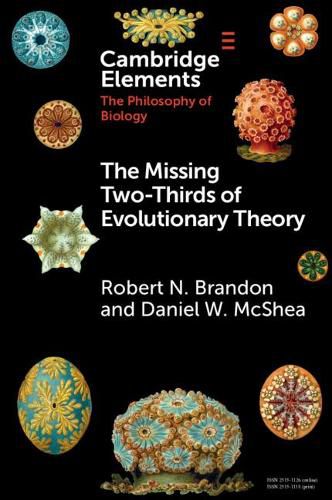Readings Newsletter
Become a Readings Member to make your shopping experience even easier.
Sign in or sign up for free!
You’re not far away from qualifying for FREE standard shipping within Australia
You’ve qualified for FREE standard shipping within Australia
The cart is loading…






In this Element, we extend our earlier treatment of biology’s first law. The law says that in any evolutionary system in which there is variation and heredity, there is a tendency for diversity and complexity to increase. The law plays the same role in biology that Newton’s first law plays in physics, explaining what biological systems are expected to do when no forces act, in other words, what happens when nothing happens. Here we offer a deeper explanation of certain features of the law, develop a quantitative version of it, and explore its consequences for our understanding of diversity and complexity.
$9.00 standard shipping within Australia
FREE standard shipping within Australia for orders over $100.00
Express & International shipping calculated at checkout
In this Element, we extend our earlier treatment of biology’s first law. The law says that in any evolutionary system in which there is variation and heredity, there is a tendency for diversity and complexity to increase. The law plays the same role in biology that Newton’s first law plays in physics, explaining what biological systems are expected to do when no forces act, in other words, what happens when nothing happens. Here we offer a deeper explanation of certain features of the law, develop a quantitative version of it, and explore its consequences for our understanding of diversity and complexity.